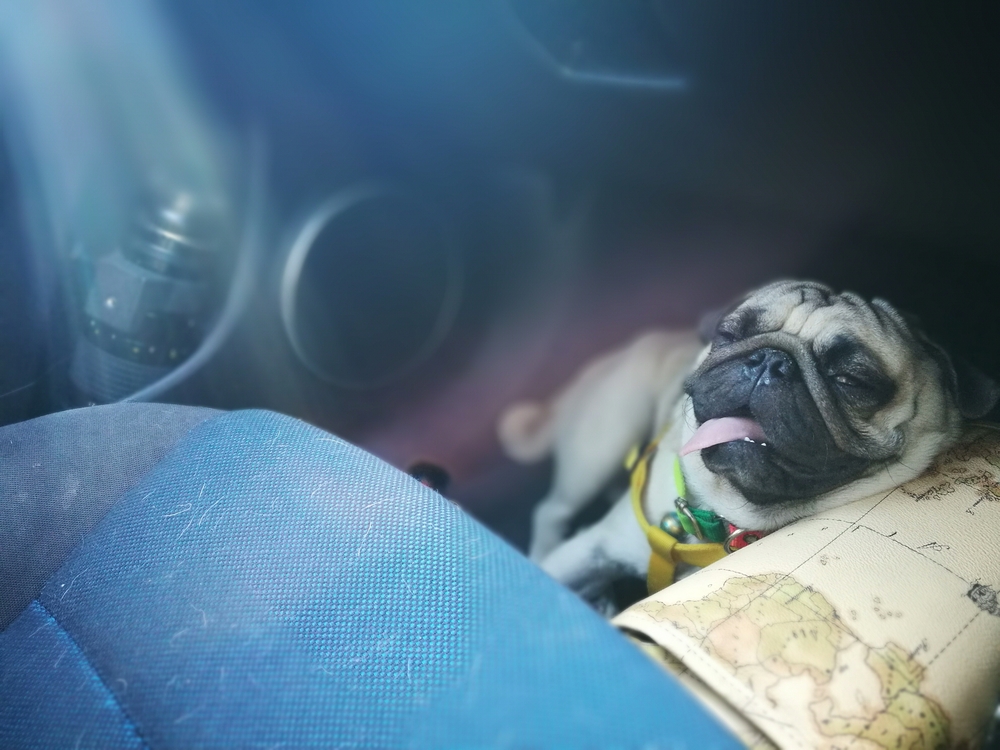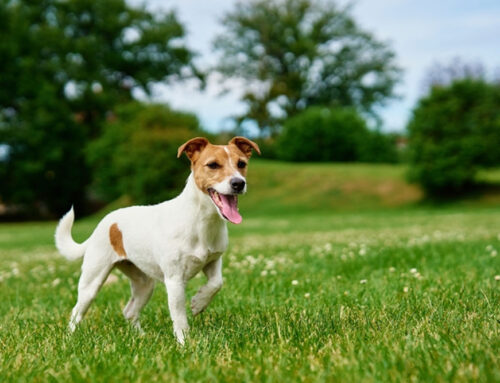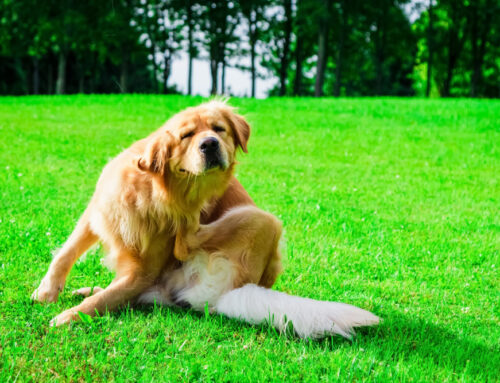Pets are mischievous, and their shenanigans can lead to emergency situations. While not all pet emergencies can be avoided, you can take steps to decrease your pet’s risk. The veterinarians at Oliver Animal Hospital in south Austin want to provide tips to prevent five common pet emergencies.
#1: Prevent your pet from being hit by a car
About 1.2 million pets are killed in traffic accidents every year. These incidents also can result in injuries such as fractured bones, lung contusions, internal bleeding, degloving injuries, and brain injuries. If your pet survives an accident, their recovery could be prolonged and their veterinary bills high. Taking precautions is the best way to protect your pet from being hit by a car.
- Keep your pet on a leash when out for a walk — Always keep your pet leashed when you take them for a walk, and use a harness style leash if they frequently escape their collar.
- Be alert near roadways — When walking your pet near roadways, keep them close by your side, and be especially careful if you are using an extendable leash.
- Train your pet to obey commands — Train them to respond to commands such as “sit” and “wait” to use at roadway crossings to ensure they don’t bolt into traffic.
- Check your fencing — Ensure there are no weak areas in your fence where your pet could sneak through when they are outside.
- Keep your cat inside — Ensure your cat remains inside to keep them safe.
#2: Prevent your pet from being attacked by other animals
Your pet can be attacked by other pets and wild animals, and the resulting wounds can tear your pet’s skin, fat, and muscle layers apart, seeding these areas with infection. In addition, a bite wound can penetrate into the chest or abdominal cavity, causing a life-threatening situation. Keeping your dog on a leash and your cat indoors can help prevent these occurrences. Other precautions to take include:
- Spay or neuter your pet — Neutered male pets and spayed female pets are less likely to roam from home, and neutered male pets are also less likely to show aggression toward other pets and animals.
- Socialize your pet — Expose your pet to other pets and different situations when they are young to properly socialize them. Well-socialized pets are less likely to be aggressive.
- Be alert for aggressive animals — When out for a walk, watch for other pets or animals displaying aggressive behavior, and keep your pet well away from them.
#3: Prevent your pet from ingesting poison
Many common foods, over-the-counter and prescription medications, plants, and household products are toxic to pets, and ingesting these substances can lead to life-threatening consequences. Precautions to take to safeguard your pet include:
- Know what substances are toxic to pets — Educate yourself on what substances are toxic to pets so you know what products to avoid.
- Read labels carefully — Before giving your pet any food, read the label carefully to ensure the product doesn’t contain a pet toxin.
- Keep medications and household supplies secure — Keep all medications and household products in a closet or cabinet inaccessible to your pet.
- Take medications in a separate room — When taking a medication, go in a separate room and close the door to ensure your pet isn’t able to ingest a pill if you drop it.
- Keep trash in sealed containers — Ensure your garbage is inaccessible to your pet to keep them from dumpster diving and retrieving a toxic substance.
#4: Prevent your pet from ingesting a foreign object
Pets explore the world with their mouth, and they may ingest a foreign object such as a sock or a rock. These items can become lodged in their gastrointestinal tract, causing an obstruction that may require surgery to remove. Precautions to take to prevent your pet from ingesting a foreign body include:
- Keep small objects out of reach — Ensure all objects small enough for your pet to swallow are kept out of their reach.
- Provide appropriate chew toys — Ensure your pet has access to appropriate, safe chew toys to prevent them from seeking other off-limits items.
- Don’t give your pet bones — Refrain from giving your pet food with bones or treats such as antlers or hooves. These products can fracture, causing your pet to ingest a piece.
#5: Prevent your pet from experiencing heat exhaustion

Pets can’t sweat, and they are more susceptible to heat exhaustion than humans. This condition causes severe inflammation throughout their body and can lead to significant health issues and potentially death. Older pets, obese pets, and brachycephalic breeds are at higher risk. Precautions to take to prevent heat exhaustion in your pet include:
- Never leave your pet in an unattended vehicle — The temperature inside a parked vehicle can rise rapidly, and parking in the shade or leaving the window cracked does not decrease the heat. Leave your pet at home if they won’t be able to accompany you inside establishments.
- Don’t leave your pet outside on a hot day — Keep your pet inside in the air conditioning on hot, humid days.
- Take water when you walk — When going for a walk, ensure you have water and a water bowl so you can offer your pet water along the way.
Following these tips will help protect your pet from some common pet emergencies. If your pet is affected by an emergency, contact the south Austin veterinarians at Oliver Animal Hospital so we can address the issue as soon as possible.







Leave A Comment